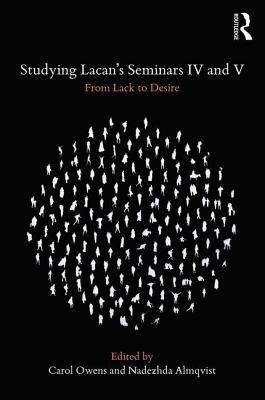
- Retrait gratuit dans votre magasin Club
- 7.000.000 titres dans notre catalogue
- Payer en toute sécurité
- Toujours un magasin près de chez vous
- Retrait gratuit dans votre magasin Club
- 7.000.0000 titres dans notre catalogue
- Payer en toute sécurité
- Toujours un magasin près de chez vous
Studying Lacan's Seminars IV and V
From Lack to Desire
Description
This is the first collection of essays to offer a comprehensive analysis of, and reflection on, the major themes emergent in Jacques Lacan's seminars of 1955-56 and 1956-57: Seminar IV - the object relation, and Seminar V - formations of the unconscious.
Assessing the value of a clinical approach orientated around the question of the object lack in the contemporary clinic, the book comprises 16 chapters which follow the development of a range of concepts elaborated by Lacan in these seminars, including sustained engagement with his critique of object relations theory. It considers the effectiveness of these early ideas in clinical practice in relation to hysteria, phobia, fetishism, obsessional neurosis, and of the so-called "Borderline" case. Lacan's early concepts are also subjected to critique for engagement with Queer theory, and research in asexuality or the operation(s) of the signifier Phallus.
The chapters build to provide an invaluable resource to interpret and evaluate Lacan's early teaching, and to find in his early concepts a fresh utility and scope for both clinical work and psychoanalytic research and enquiry. The book will be of great interest to Lacanian scholars and students, as well as psychoanalytic therapists, and analysts interested in Lacan's early work.
Spécifications
Parties prenantes
- Editeur:
Contenu
- Nombre de pages :
- 224
- Langue:
- Anglais
- Collection :
Caractéristiques
- EAN:
- 9780367027681
- Date de parution :
- 21-12-18
- Format:
- Livre broché
- Format numérique:
- Trade paperback (VS)
- Dimensions :
- 152 mm x 234 mm
- Poids :
- 385 g

Les avis
Nous publions uniquement les avis qui respectent les conditions requises. Consultez nos conditions pour les avis.





